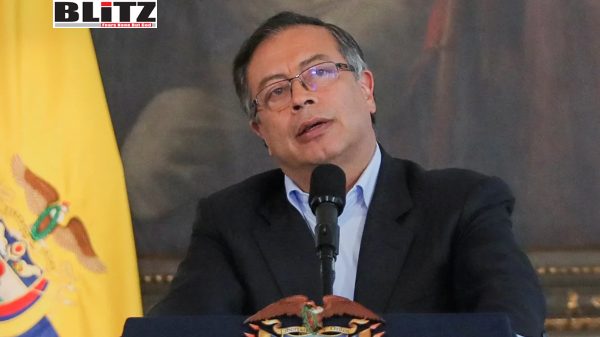Artificial Intelligence can play role in eliminating tuberculosis
- Update Time : Sunday, April 7, 2024

In an era marked by groundbreaking technological advancements, the convergence of artificial intelligence (AI) and medical expertise offers unprecedented promise in the fight against tuberculosis (TB). With more than 3,000 lives lost daily to this preventable and curable disease, the imperative to leverage innovative solutions has never been more urgent. By harnessing AI tools developed by private entities and fostering collaborative partnerships, governments and civil society organizations can spearhead transformative initiatives to combat TB and ensure equitable access to life-saving care worldwide.
The emergence of AI-powered technologies has ushered in a new era across diverse sectors, notably healthcare. Among these innovations, OpenAI’s generative AI chatbot, ChatGPT, serves as a striking example of AI’s transformative capabilities. Its global resonance is evidenced by its ability to captivate audiences worldwide and ignite discussions among prominent leaders at prestigious gatherings like the United Nations Climate Change Conference (COP28) and the World Economic Forum in Davos. As the spotlight increasingly shifts towards leveraging AI to confront pressing global challenges, tuberculosis (TB) emerges as a focal point for intervention, showcasing the potential of AI to revolutionize healthcare delivery on a global scale.
Despite significant progress in understanding TB transmission and the availability of highly effective treatment regimens, the disease continues to exact a devastating toll. In 2022 alone, TB claimed 1.3 million lives globally, underscoring the need for innovative approaches to accelerate progress towards eradication. The Global Fund to Fight AIDS, Tuberculosis, and Malaria recognizes the potential of AI in this endeavor and champions public-private partnerships to develop and deploy digital public-health tools aimed at revolutionizing TB care.
In regions like Bangladesh, where TB burden remains high, pioneering initiatives combine digital X-rays, AI, and telemedicine to streamline TB screening and facilitate prompt treatment initiation. Collaborative efforts involving healthcare providers from the public and private sectors, along with local community partners, enable rapid identification of TB cases, ensuring timely intervention and care delivery. Similarly, initiatives in Pakistan’s Punjab province leverage AI to identify TB “hot spots” and deploy mobile health camps to reach underserved populations with diagnostic and treatment services.
The integration of AI into healthcare transcends conventional clinical environments, as evidenced by initiatives such as those in Paraguay’s Padre de la Vega prison. Here, the deployment of portable X-ray machines alongside AI technology enables swift TB screening among incarcerated individuals. Similarly, in Cambodia and Indonesia, collaborative efforts harness AI-powered analysis of X-ray scans to bolster TB detection. This facilitates remote interpretation by radiologists, effectively extending diagnostic reach to resource-constrained regions. Such innovative partnerships underscore AI’s potential to democratize access to advanced healthcare solutions, particularly in underserved communities where traditional infrastructure may be lacking.
These targeted interventions not only address TB-specific challenges but also tackle broader inequities that perpetuate disease transmission. By addressing underlying factors such as poverty, conflict-induced displacement, and limited access to healthcare facilities, these initiatives lay the groundwork for resilient health systems capable of addressing multifaceted public-health threats. Moreover, they prioritize vulnerable populations, including women and children, through comprehensive service delivery in mobile health camps.
Collaboration emerges as a linchpin in the endeavor to combat TB and advance global health equity. The Global Fund’s commitment to fostering partnerships underscores the importance of collective action in developing and scaling up innovative solutions. By allocating significant resources to digital health tools, the Global Fund seeks to bridge gaps in access to healthcare and empower communities to confront TB and other health challenges effectively.
Yet, as the world grapples with evolving health threats, sustained commitment and innovation are imperative. The development of targeted, sustainable solutions demands ongoing engagement with local communities and stakeholders to address diverse public-health challenges. By harnessing the collective expertise of governments, industry leaders, and grassroots organizations, we can harness the full potential of AI to overcome TB and pave the way for a healthier, more equitable future.
The intersection of AI and medical prowess heralds a transformative era, offering a monumental chance to eradicate TB and revolutionize global health trajectories. By fostering collaborative alliances, pioneering technological advancements, and unwavering dedication to fairness, we possess the means to shift the balance in our favor against TB. Through concerted efforts, we can navigate towards a world liberated from the shackles of this age-old affliction. Let us capitalize on AI’s transformative potential, seizing this juncture to materialize our collective aspiration for a future where health and prosperity flourish universally.
















